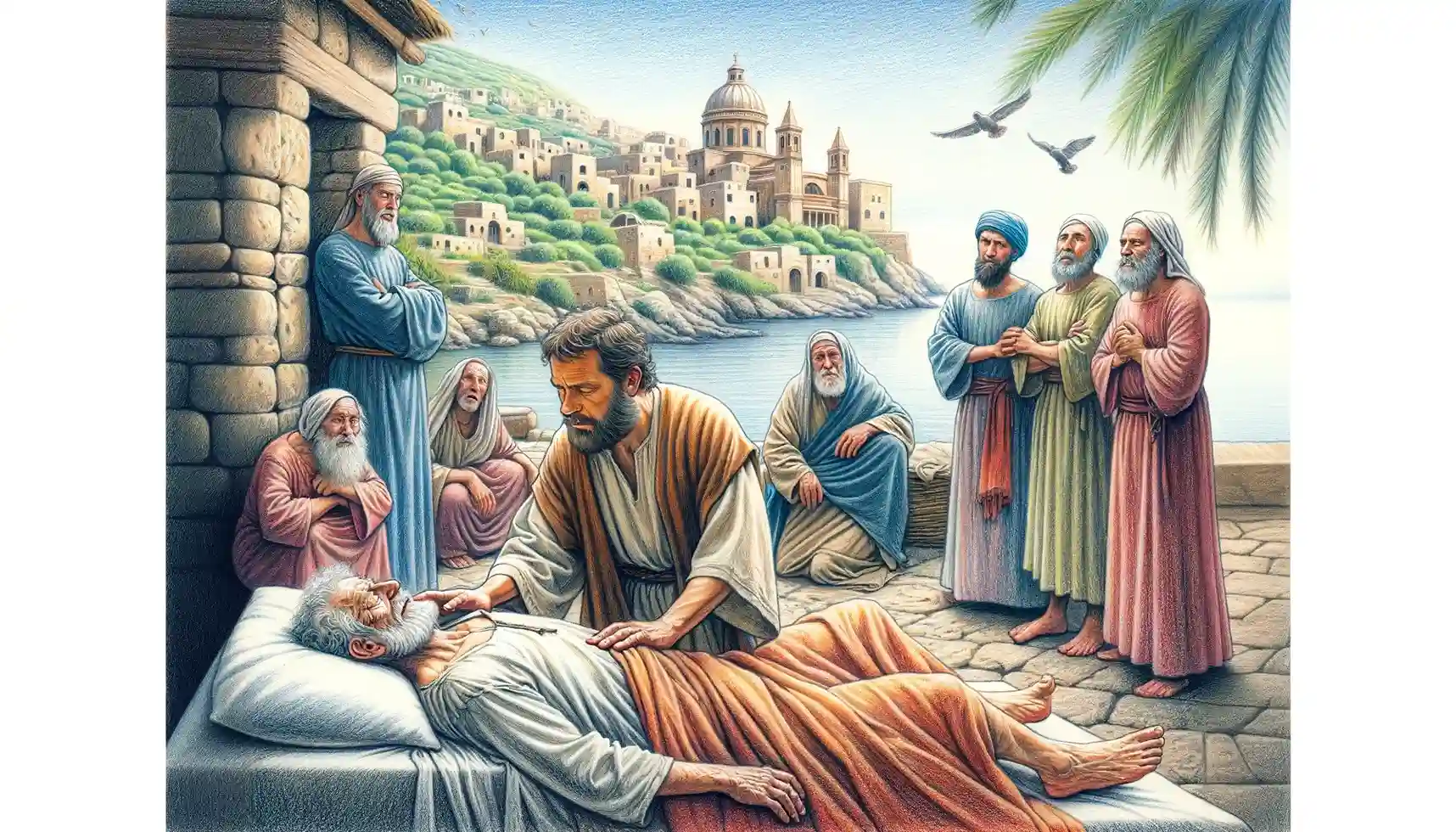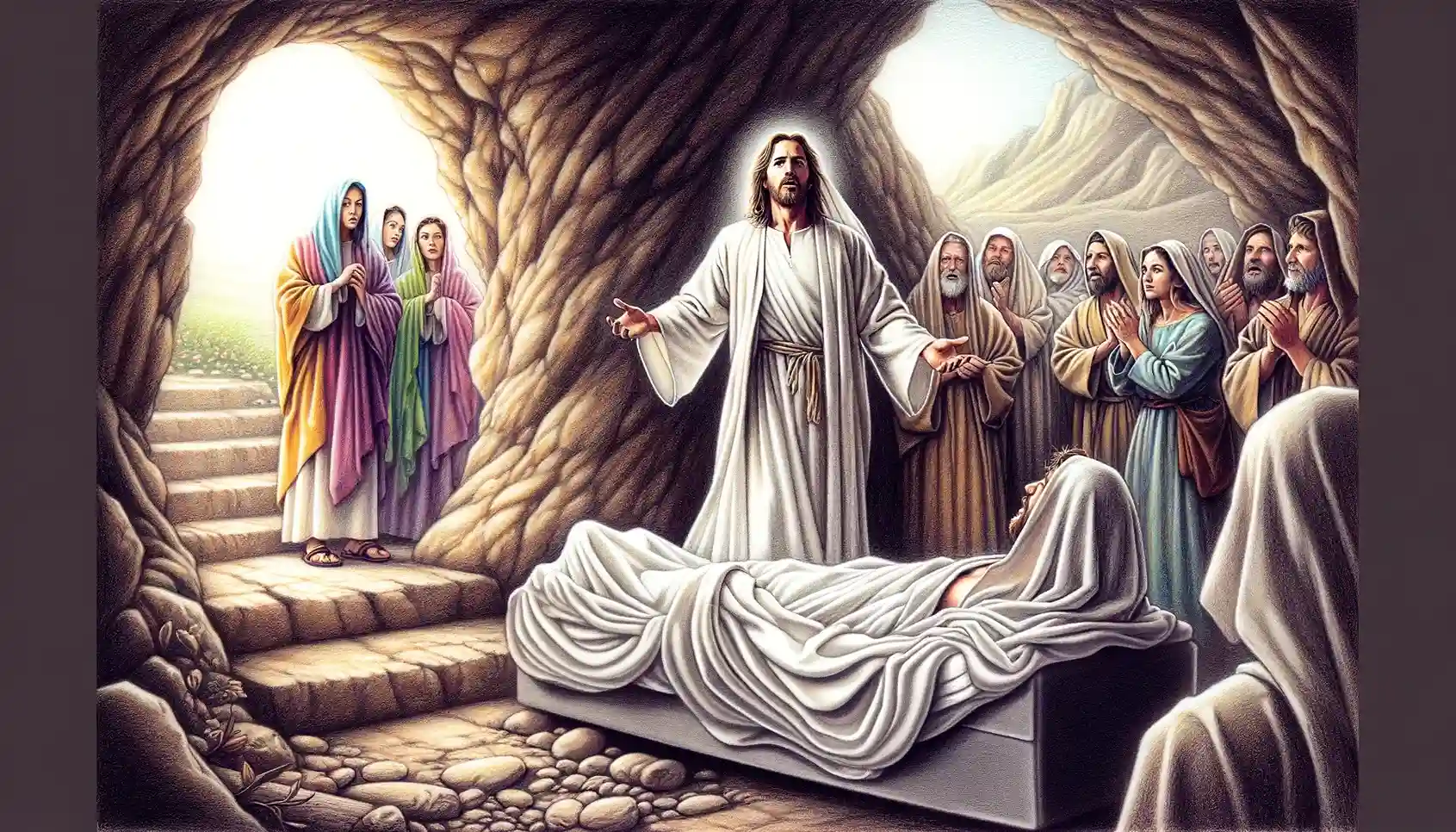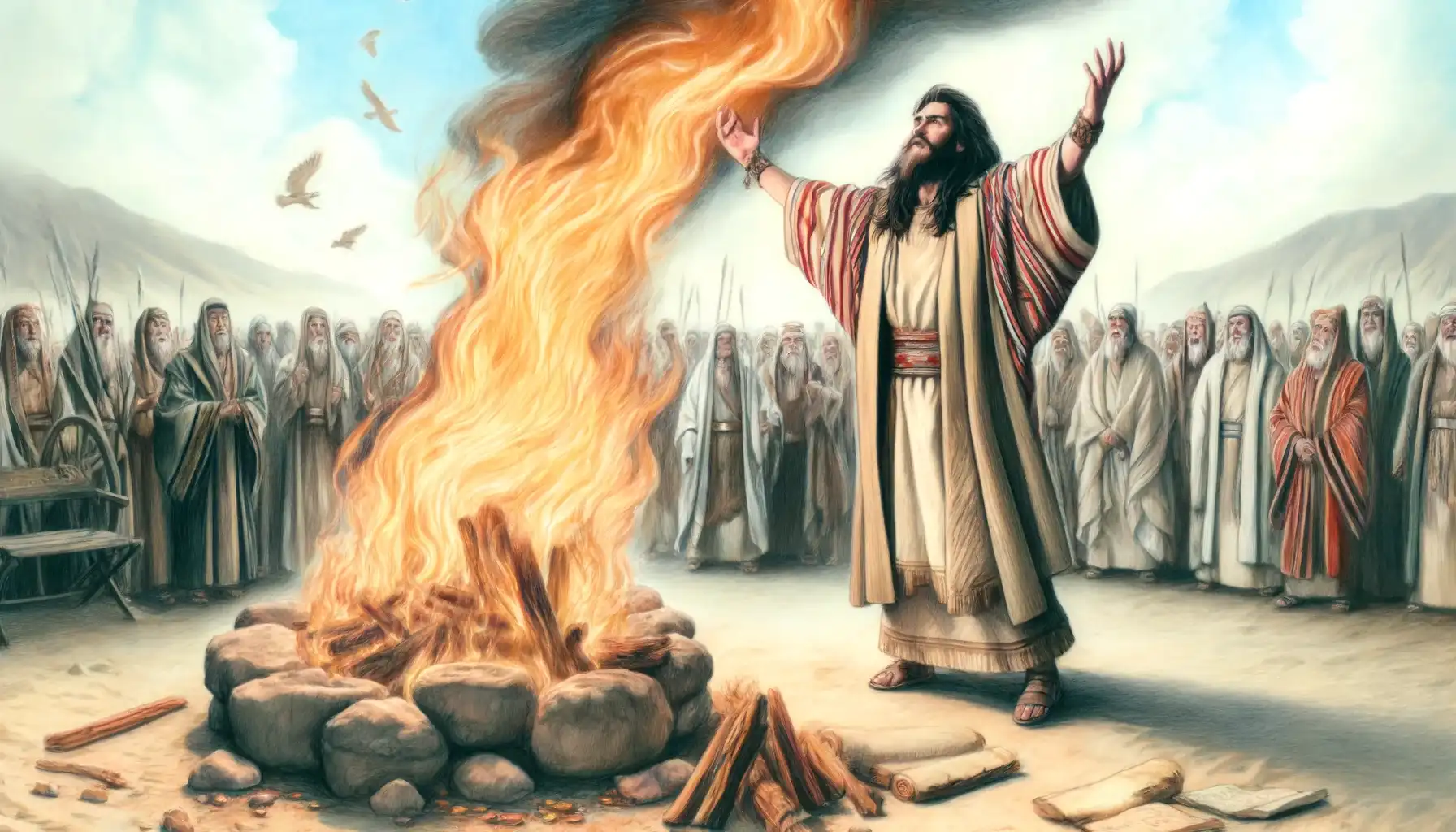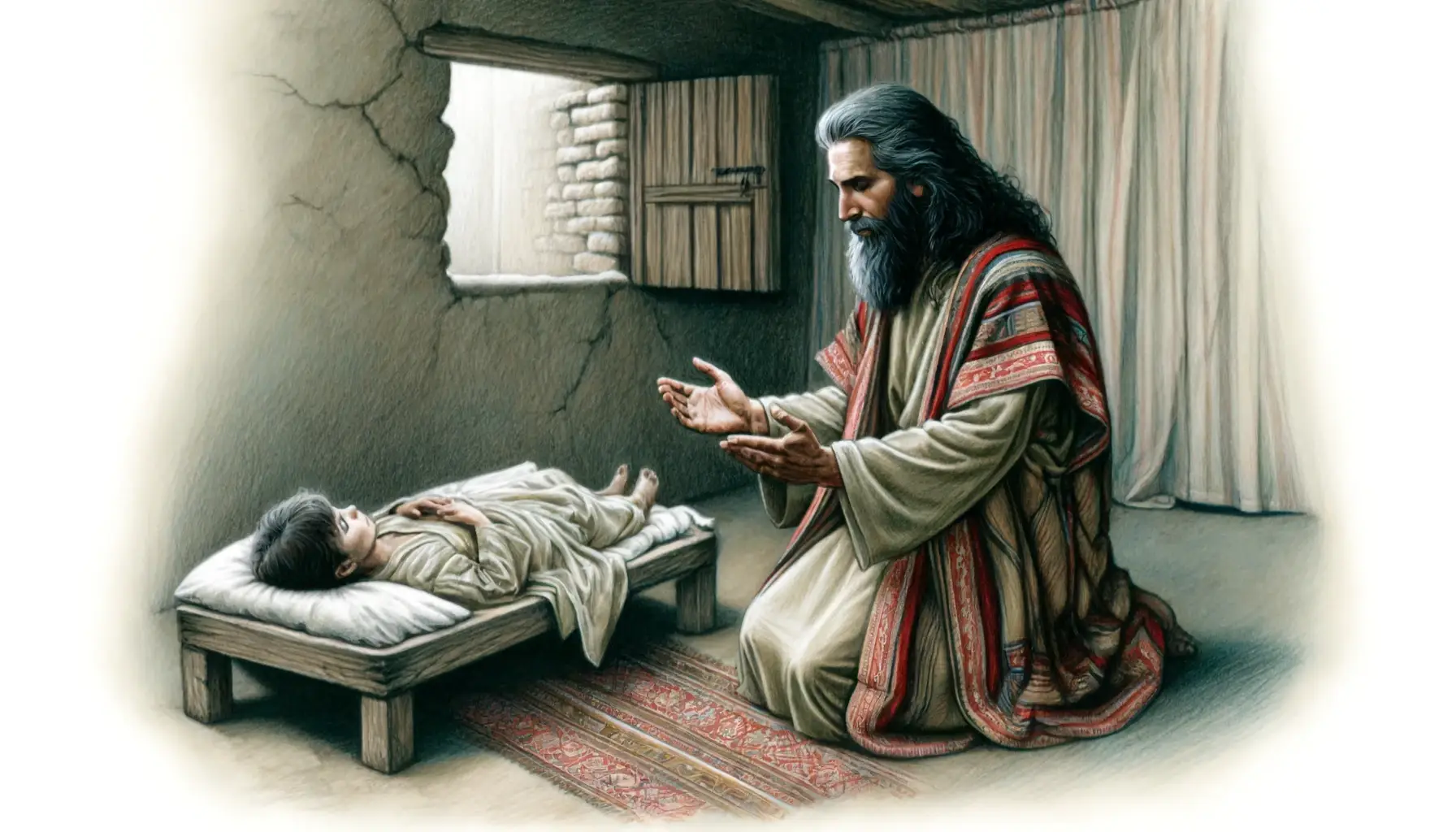In Acts 28:8-9, after surviving a shipwreck and a viper bite, Paul performs miraculous healings on the island of Malta, including curing the father of Publius, the chief official, and many other sick islanders, which leads to widespread recognition of God’s power.
Lazarus, a close friend of Jesus who lived in Bethany, was raised from the dead by Jesus after being in the tomb for four days, demonstrating Jesus’ divine power and strengthening the faith of many.
In the dramatic episode on Mount Carmel, as detailed in 1 Kings 18:36-38, Elijah calls down fire from heaven to consume a water-drenched sacrificial offering, decisively demonstrating Yahweh’s supremacy over Baal and significantly impacting Israel’s religious landscape by reaffirming monotheistic worship and the authority of God’s prophetic messenger.
In the narrative of 1 Kings 17:17-24, Elijah raises the widow’s son from the dead in Zarephath, showcasing God’s supreme power over life and death, and reinforcing the prophet’s authority as a true messenger of Yahweh, thereby deepening the widow’s faith and illustrating the reach of God’s miraculous intervention beyond Israel.
In 2 Kings 2:14, Elisha’s parting of the Jordan River with Elijah’s mantle not only demonstrates his succession and the continuity of divine power but also symbolically reaffirms his prophetic authority, echoing the miracles of his predecessor and underscoring the enduring presence of God with Israel’s prophets.





